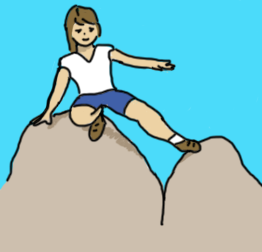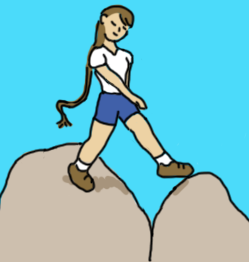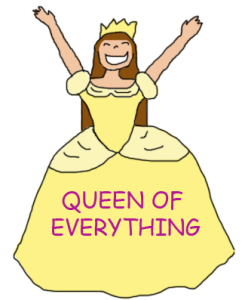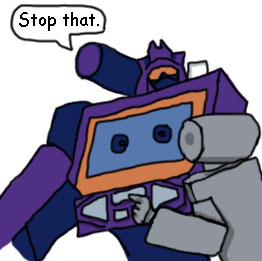We make things harder than they actually are. Take rock-climbing.
The beginning rock-climber takes way more steps and hand-holds than she actually needs. Trust me. I’m a beginner. I will not move an inch unless I am braced with both feet and both hands and the distance to step is smaller than a stair. You end up taking quite a long route, and turning back frequently.

Over time, of course, one gets the hang of things, and you start to realize you don’t have to hold on with BOTH hands. You can step farther than you thought. You take the occassional minor risk, and it pays off, so you make more.

This applies to any skill. As you expand the boundaries of what you are willing to do, as you learn how to do each little step, you start to be able to take the straighter path. You stop thinking so much about each individual step. Over time, with practice and hard work, you are able to do things in a way that seems effortless to others.
I emphasize the ‘seems’. The amount of work being done hasn’t changed. You’ve just learned the simplest way to do it. You no longer hesitate. You’ve got this.

Of course I’m really talking about writing. What else do I blog about?
When I was a beginning writer, I was careful. I tried to anticipate every critique. I took the long way around my plot to avoid difficult passages. I was afraid. Like the fear of falling, I was afraid of the pain of rejection, or of being judged as a person for what I wrote. Fear kept me crab-walking where I could have strode.
And sometimes it froze me completely, as I tried to safeguard against every possible misinterpretation (or, worse, correct interpretation.)

I can’t put my arms down!
We all have skills we’ve mastered. Walking. Chewing. I know to the minute how late I can sleep and make it to work on time. (It’s my one true skill. I have my morning routine down to four minutes because to hell with anything that isn’t sleep.)
When we see our own skills, we simultaneously see all the work it took us to achieve them. Maybe this is where that impostor syndrome kicks in – we remember our scrambles and scrapes and falls, but when we see another person exercise her skill, we don’t see her backstory, just the skill. It’s like she always had it, like magic.

Like it wasn’t work.
Let me tell you one of my least-favorite things to hear from someone. “But if you do it, it isn’t work, because you’re good at it.” Yeaaaaah no. Sorry, no. Seriously, no. At no point does skill give you a magic wand. Knitting is still one stitch after another, squinting in confusion at the pattern. (No, I will not make you a sweater.) Writing is still one sentence after another, wondering what point I’m even trying to make. Climbing that rock still takes strength and risk.
When we say something is too hard, what we mean is: we don’t want to do the work. The work looks daunting. Exhausting. We don’t have the energy. The work might not be worth it. That’s a risk. It’s a risk you don’t have to take. It’s okay to just do what you know will be worth it.
And all this extra work we put in for safety’s sake? That’s more work. It’s more likely not to be worth it.
There’s no magic shortcut, unfortunately, to the confidence to take fewer steps. If I knew a way to start without the butt-scootch here is the point in the post where I would tell it to you. It sucks, and it is a risk, but if you can hold your breath and take that dangerous step, conquer your fear – that is always worth it.



